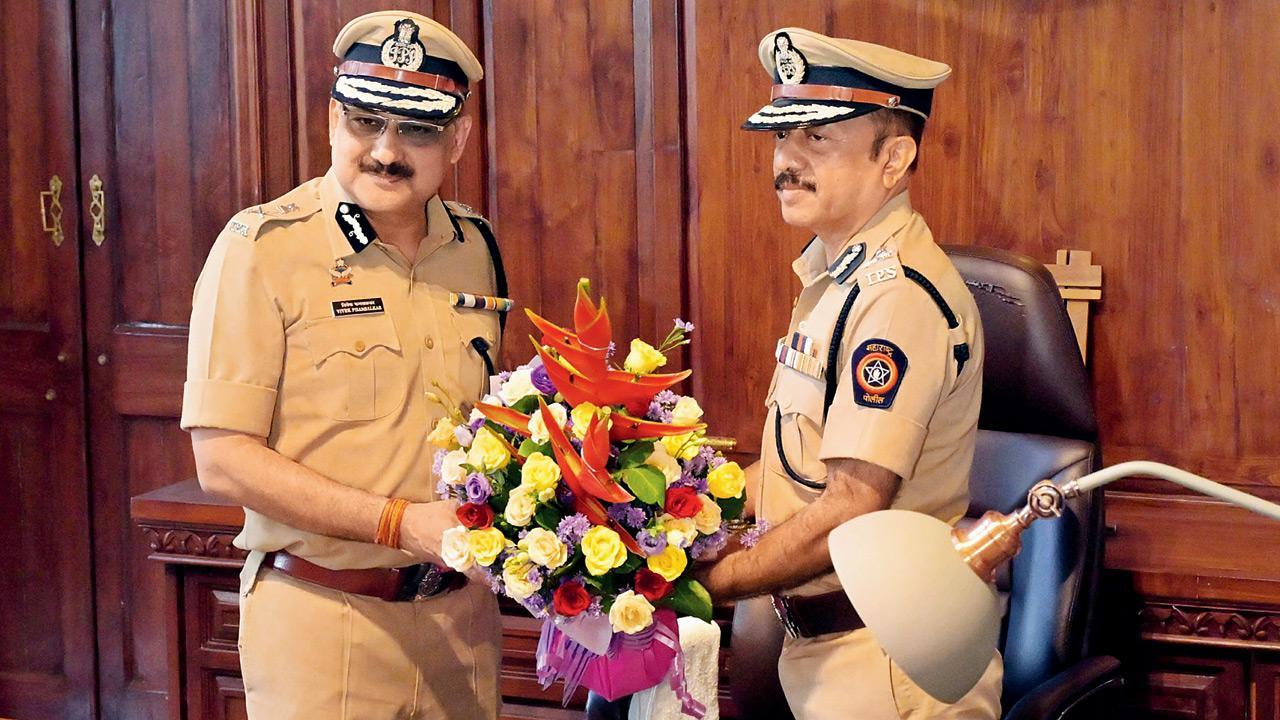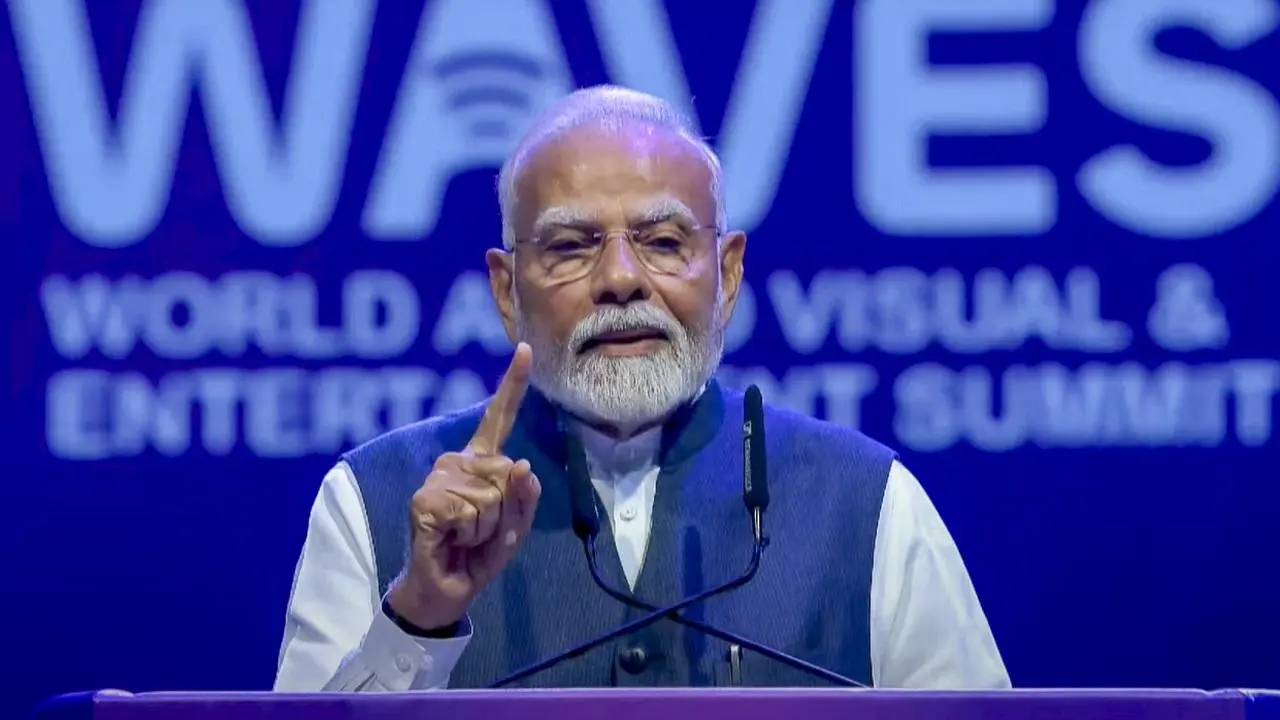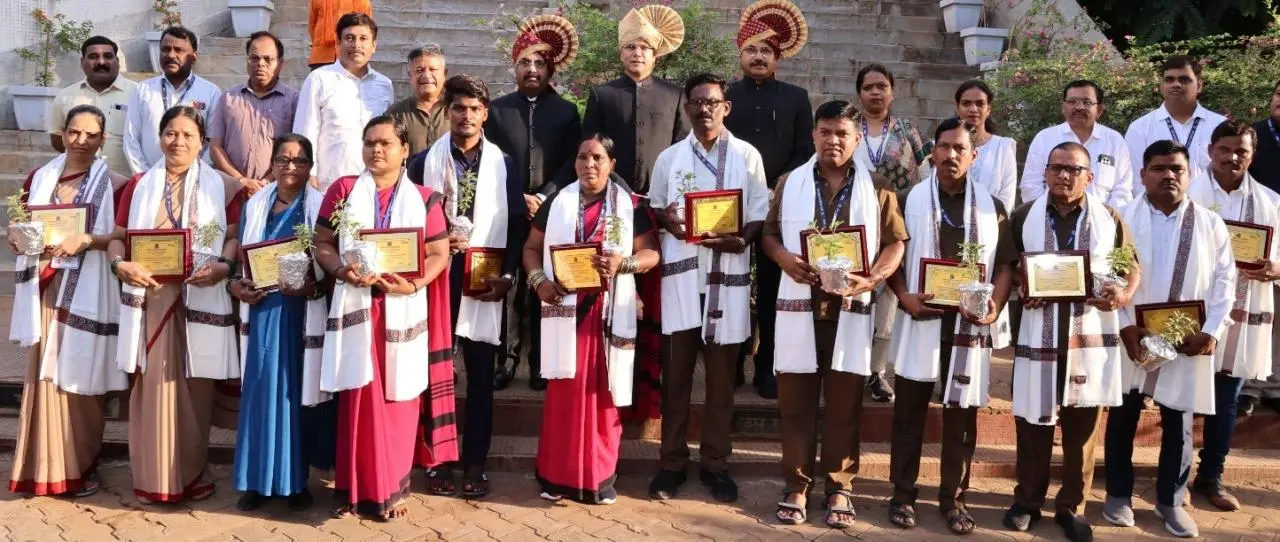
AMID intense speculation, senior IPS officer Deven Bharti has officially taken charge as the new Mumbai Police Commissioner, succeeding Vivek Phansalkar, who retired on Wednesday. Speaking shortly after assuming office, Bharti outlined his vision for a more connected and technologically equipped police force.
“My top priority is to ensure that the police reach every individual in the city,” Bharti stated in his first address to the media. “We will work to bridge the gap between the police and the common citizen. At the same time, we will remain highly vigilant about cybercrime.” Stressing on a combined approach of prevention and enforcement, he noted that as digital usage grows, so does its misuse, making cybercrime one of the most urgent challenges of modern policing.
He added that Mumbai police has already begun integrating artificial intelligence (AI) into its systems to monitor and track criminal activity more efficiently. “We are not just chasing criminals—we are using technology to stop crime before it happens,” he asserted.
Deven Bharti
This new chapter in Mumbai’s law enforcement comes after Bharti served as the first Special Commissioner of Police in the city since January 2023—a post created to accommodate him. The Commissioner of Police (CP) post was originally of the Additional Director General (ADG) rank and was upgraded in 2015 by the Home Department headed by Devendra Fadnavis to accommodate the well-deserving Ahmed Javed. He succeeded Rakesh Maria, who was the last CP holding the ADG rank. Now, after a decade, the post has once again been downgraded to the ADG rank to accommodate Bharti.
About Deven Bharti
A 1994 batch IPS officer, Bharti is one of the most experienced and respected officers in Maharashtra’s police force. His policing journey began far from Mumbai—in the Naxal-affected district of Gadchiroli, where he was first posted as Additional Superintendent of Police (ASP). He later served as SP in Gadchiroli, Amravati, and Akola, building his credentials in complex and sensitive environments.
Between 1998 and 2003, Bharti served on deputation with the Intelligence Bureau, gaining deep insights into national security and intelligence operations. His entry into Mumbai police came in 2003 as Deputy Commissioner of Police, Special Branch II. He later became DCP (Detection) in the Crime Branch—a critical investigative role. Since then, Mumbai has been his primary base of service.
Over nearly three decades, Bharti has held some of the most critical posts in the city’s police hierarchy: Additional Commissioner of Crime, Joint Commissioner of Police (Law and Order), and later, Joint CP in the Economic Offences Wing. Between 2015 and 2019, he held one of the longest stints as Joint CP (Law and Order), reinforcing his command over Mumbai’s complex law and order landscape.
Bharti also served as Maharashtra’s Anti-Terrorism Squad (ATS) chief and was managing director of the Maharashtra State Security Corporation during the Maha Vikas Aghadi government’s tenure, which sidelined him. He has served as the Special Commissioner of Mumbai police since 2023.
Key contributions/major cases
Known for his tough, no-nonsense style, Bharti played a crucial role in investigating the 26/11 Mumbai terror attacks and was among the officers entrusted with executing the capital punishment of convicted terrorist Ajmal Kasab. Additionally, Bharti investigated the high-profile June 2011 murder case of mid-day journalist J Dey and is also credited with crippling the Indian Mujahideen network in Maharashtra.
Key challenges for Bharti
Pahalgam attack aftermath: Critical responsibility of maintaining law and order
Fear of gangs: Keep Bishnoi gang’s growing influence and extortion bids in check
Threats to Salman: Bishnoi gang’s threats against actor Salman Khan present a high-profile security challenge
Cybercrime: Dealing with the surge in cybercrime
Communal harmony: Managing fallout from hate speeches and maintaining communal harmony
Expectations
>> Known for his deep understanding of Mumbai—gained over more than three decades of policing in the city—expectations are high for how Bharti will navigate this volatile period after the Pahalgam attack
>> To ensure lapses that led to the Baba Siddiqui murder do not recur
>> To strengthen digital policing capabilities in rapidly evolving technological landscape
>> Upholding the Mumbai police’s legacy of maintaining communal harmony through community engagement initiatives such as Mohalla Committee meetings with religious leaders to promote peace, especially amid a charged political atmosphere












